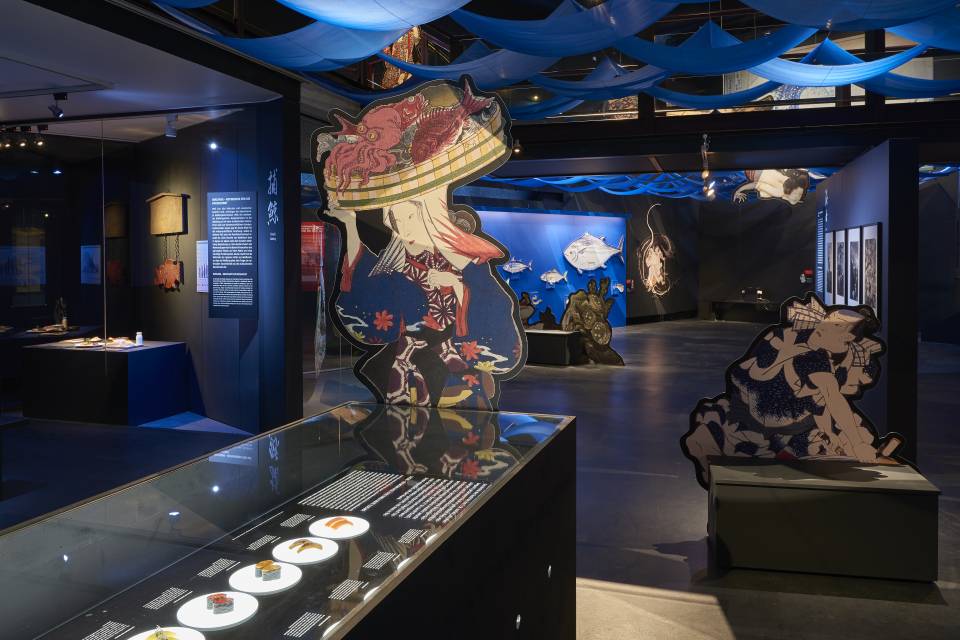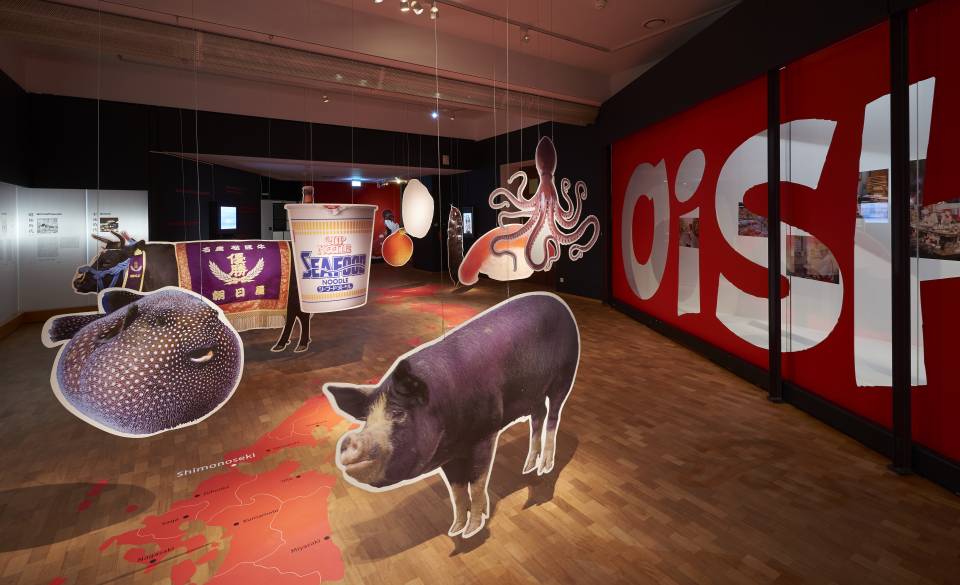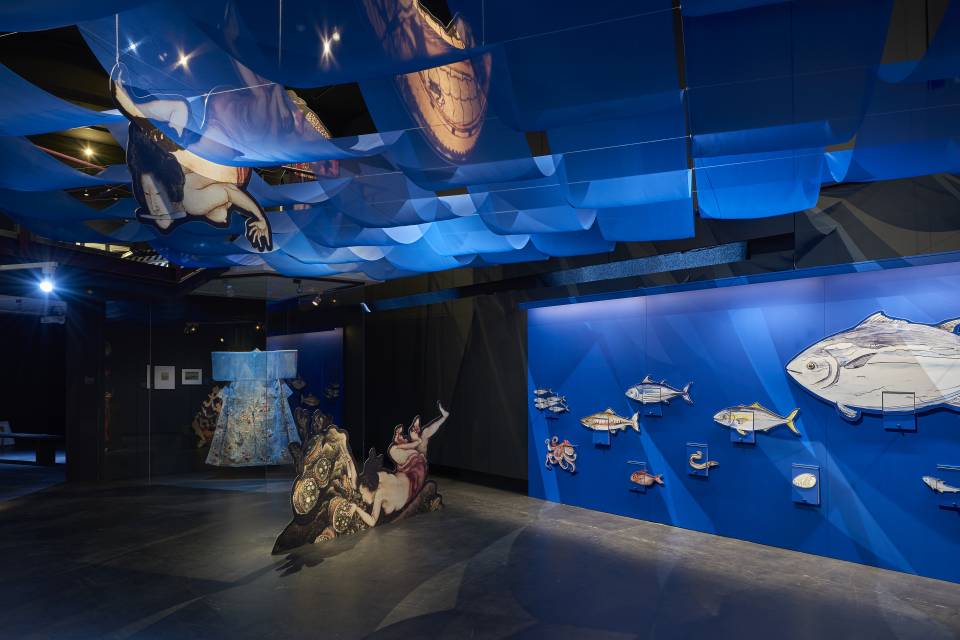Startseite > Oishii!
“Oishii!” – “I like it!” – is the most common word in Japan to indicate good taste at the dinner table. It is an expression that goes hand in hand with the social and cultural identity of the eater. Because food is much more than nutrition in Japan. It is connected with all spheres of human life and provides a view of the most diverse aspects of society.
Against this backdrop, we dedicated a large special exhibition to Japanese eating and drinking culture. The exhibition focused on the cultivation of rice and its importance for Japanese society, the “sacred drink” sake, the role of fish, seafood and seaweed as well as vegetables, noodles and condiments in the kitchen. The world of tea traditions (chanoyu and sencha), the culture of picnics and bento were also addressed. How have eating habits changed throughout history? What complex technological services are required for the extraction and preparation of food? Who eats what when? The exhibition traces all of these questions, at the same time directing our gaze to a rich material culture and encouraging us to become (more) aware of our own food habits.
Originals from the museum’s own collection were presented, ranging from ink and woodcuts to ceramics, including valuable objects that have never been shown before. These were supplemented by loans from Germany and abroad. Multimedia elements bridged the gap between the historical exhibits and the present and also brought Japanese voices into play.




Children’s booklet: With Yuki through the exhibition
Yuki shows in the children’s booklet what is eaten and drunk in her home country. She talks about her favorite dishes, why samurai were given rice as food, picnics under cherry blossoms, and the tea ceremony. How to eat with chopsticks? What do you take in the bento? And how did it happen that the fisher boy fell in love with the sea princess? The activity booklet invited people to take a closer look and solve puzzles and tasks. The activity booklet was made possible by the Gesellschaft für Erd- und Völkerkunde e.V. and was handed out free of charge to all children at the ticket desk.
Main sponsor:
Trumpf
Media partner:
G/Geschichte
Dienstag bis Samstag, 10 – 17 Uhr
Sonn- und Feiertage, 10 – 18 Uhr
Ausstellungen
Sonderausstellungen
Dauerausstellungen